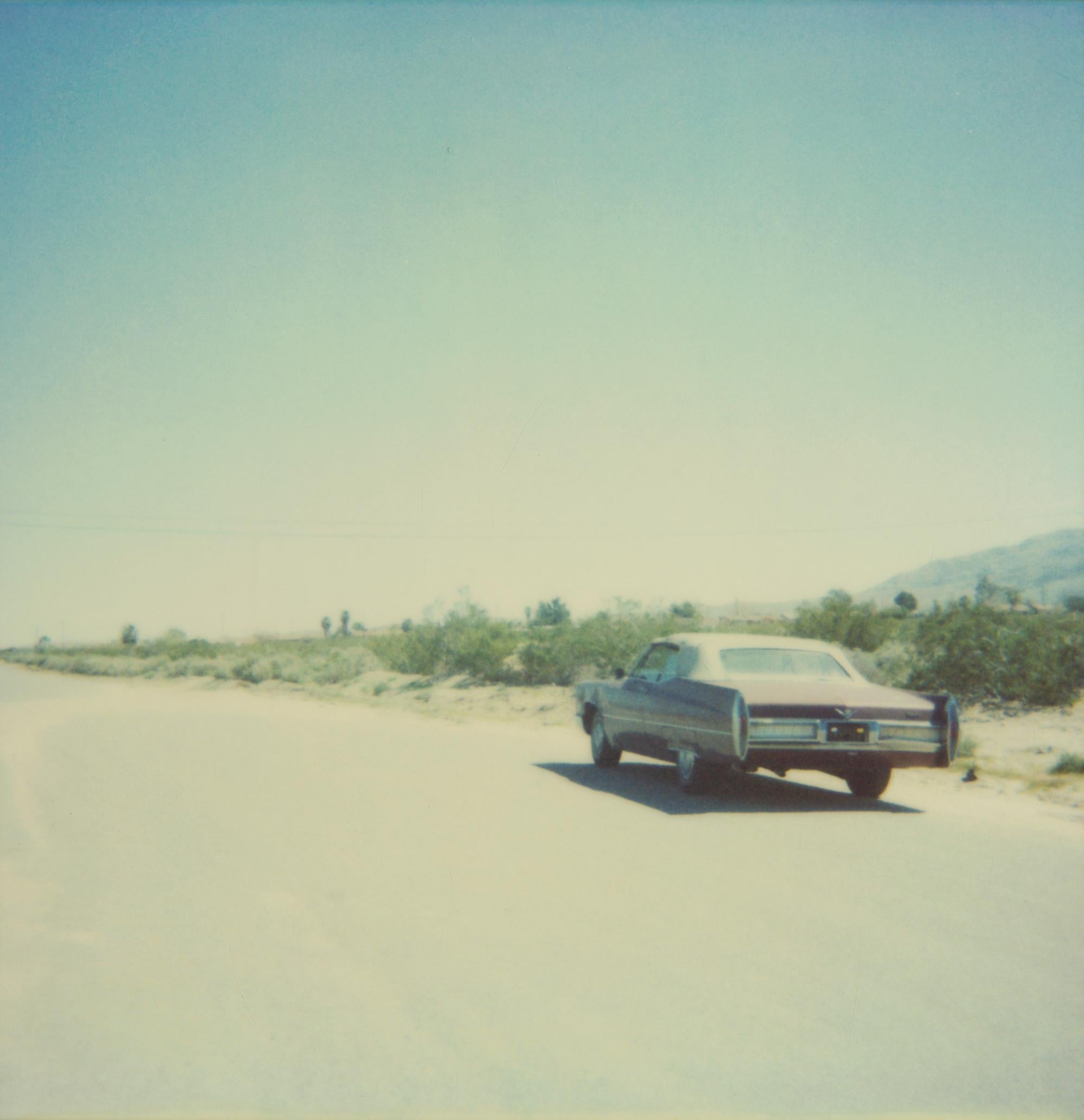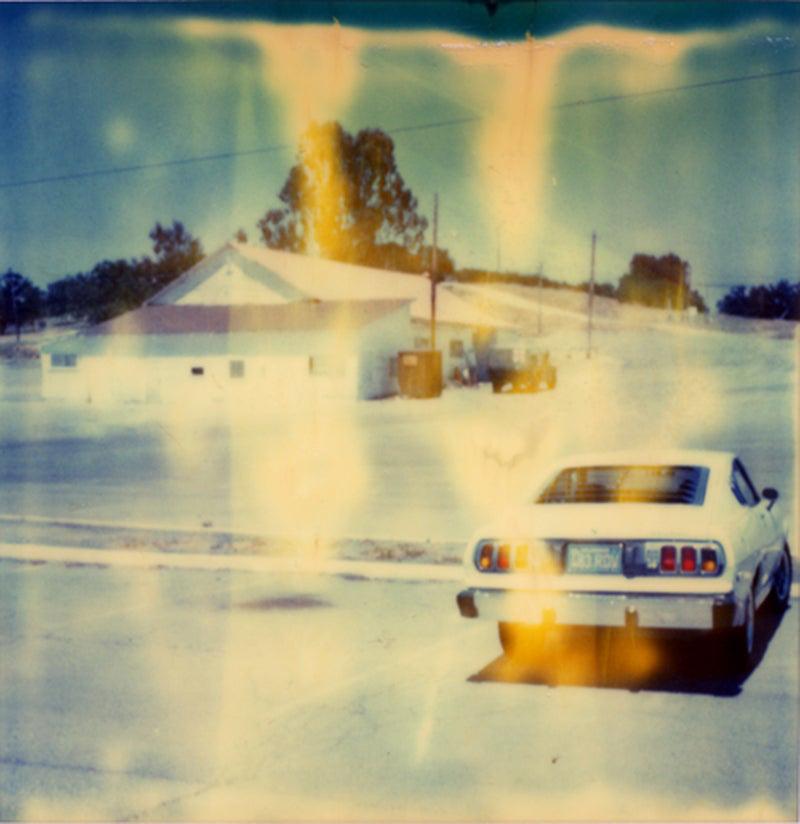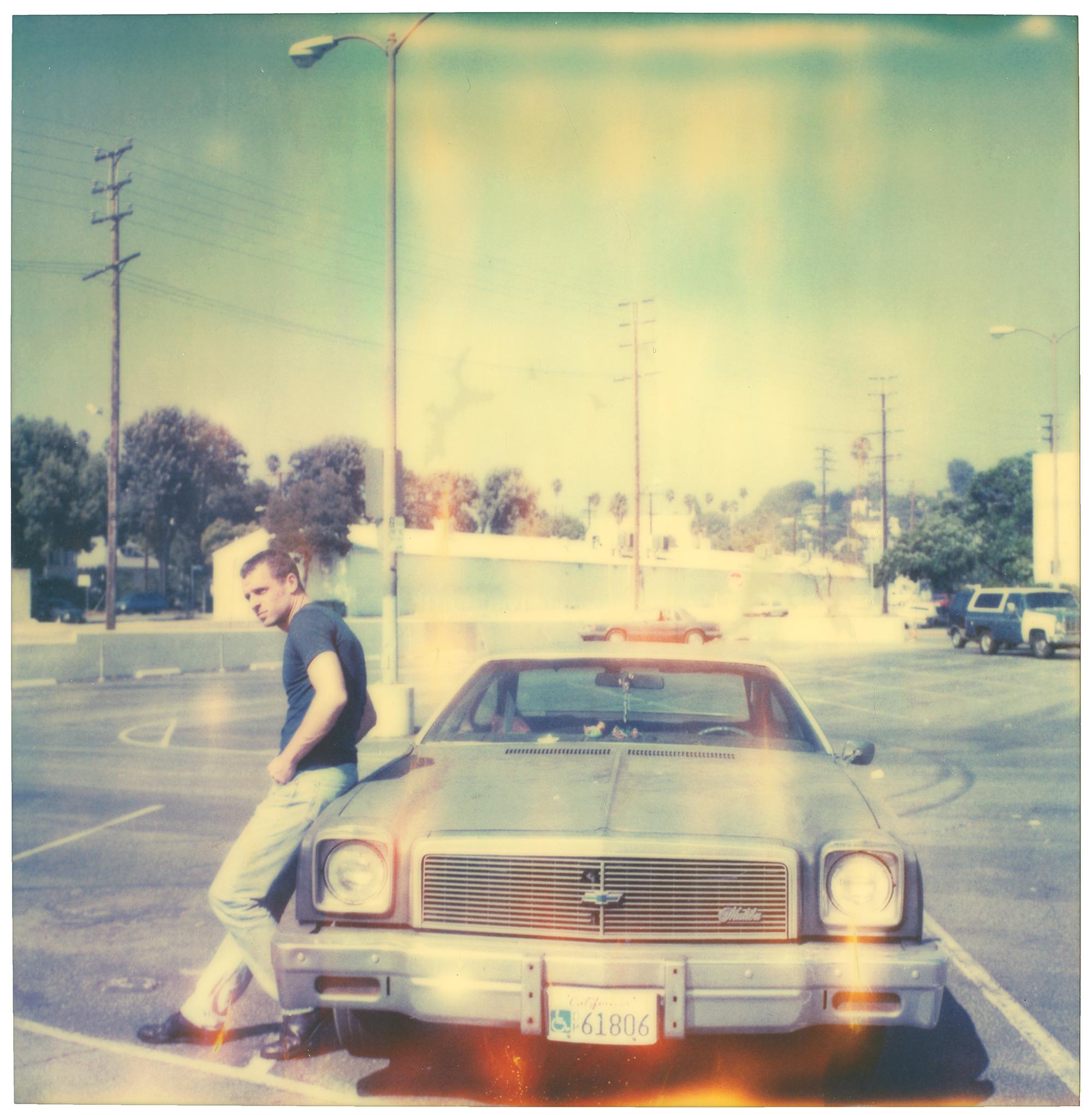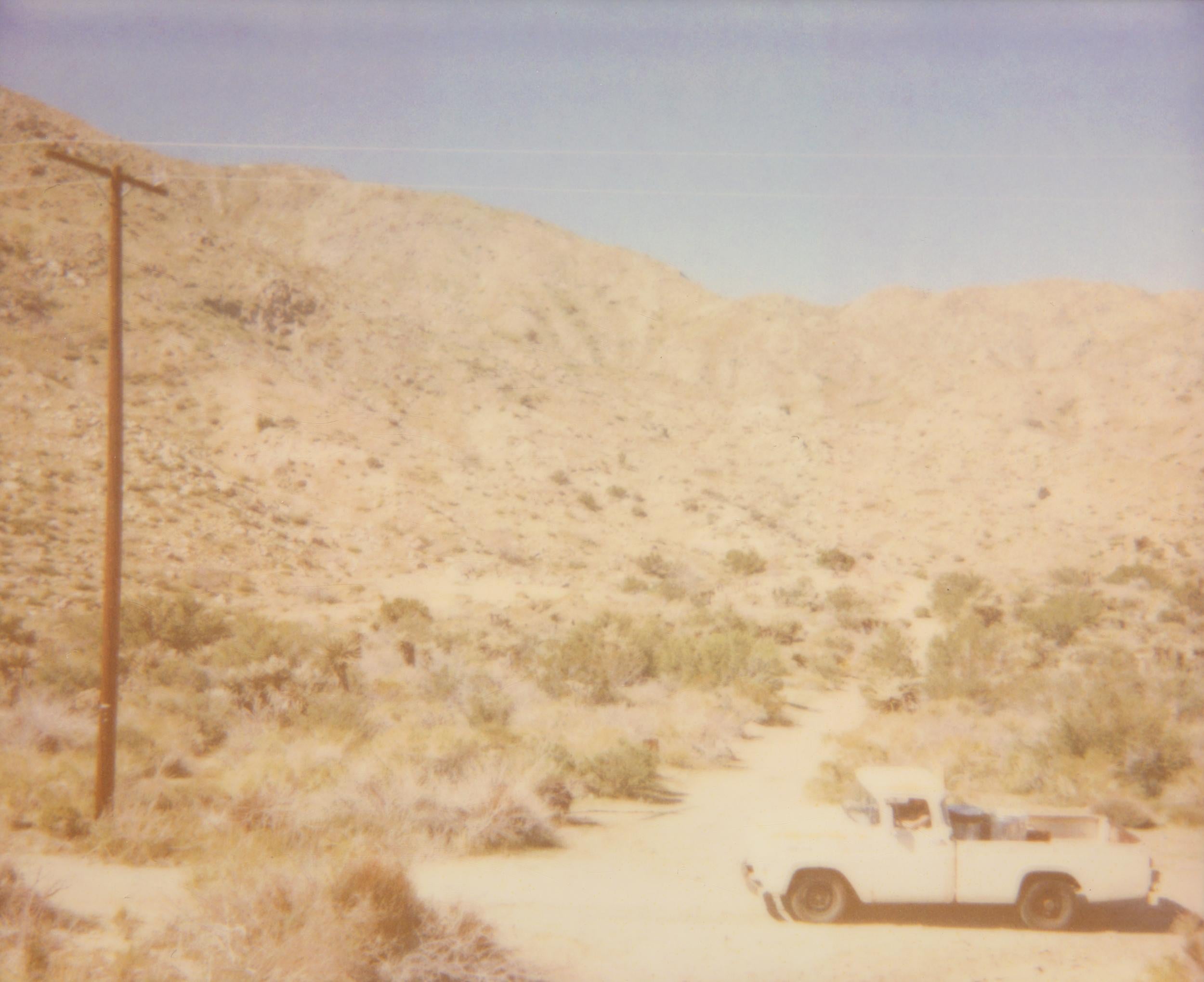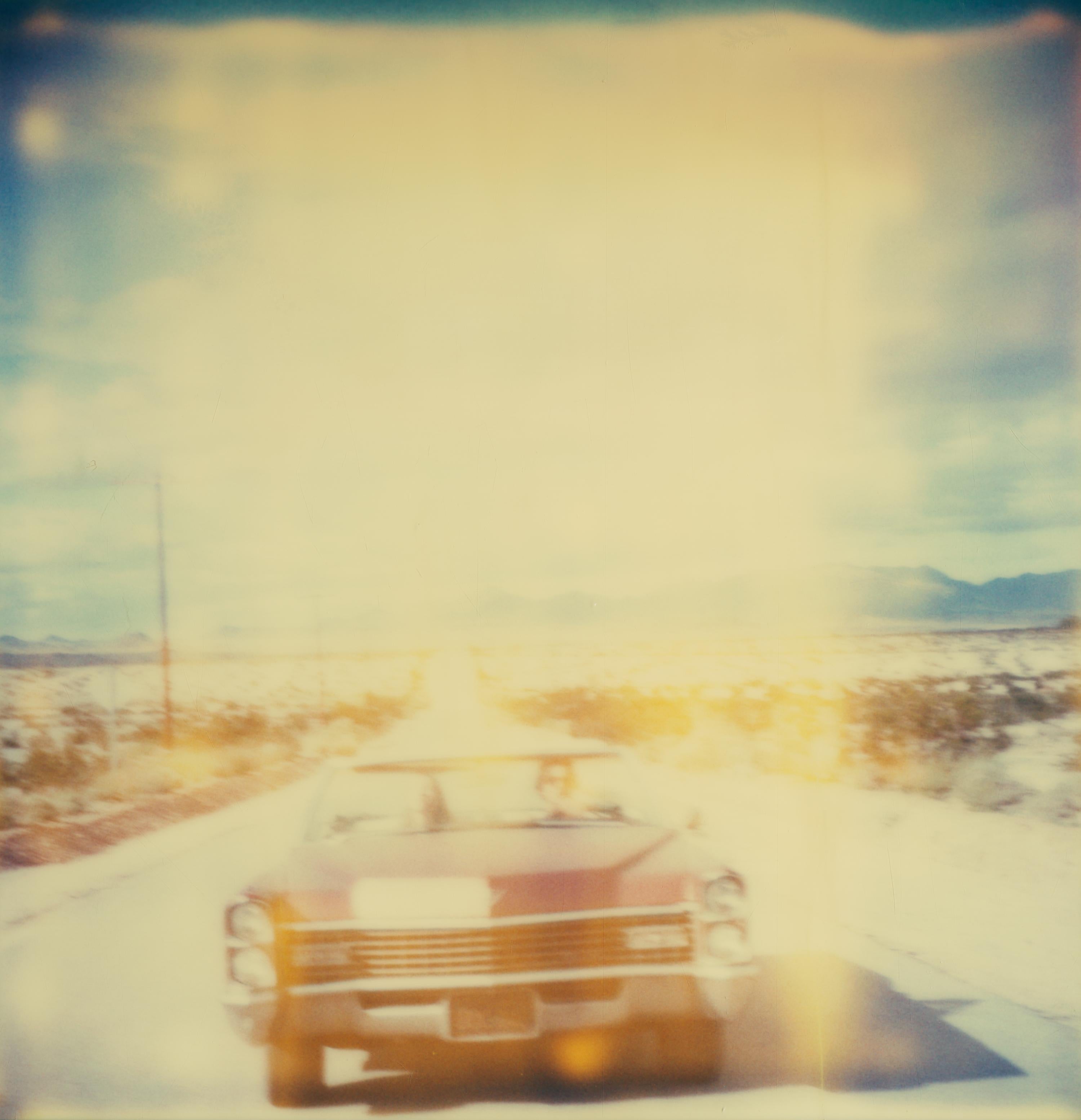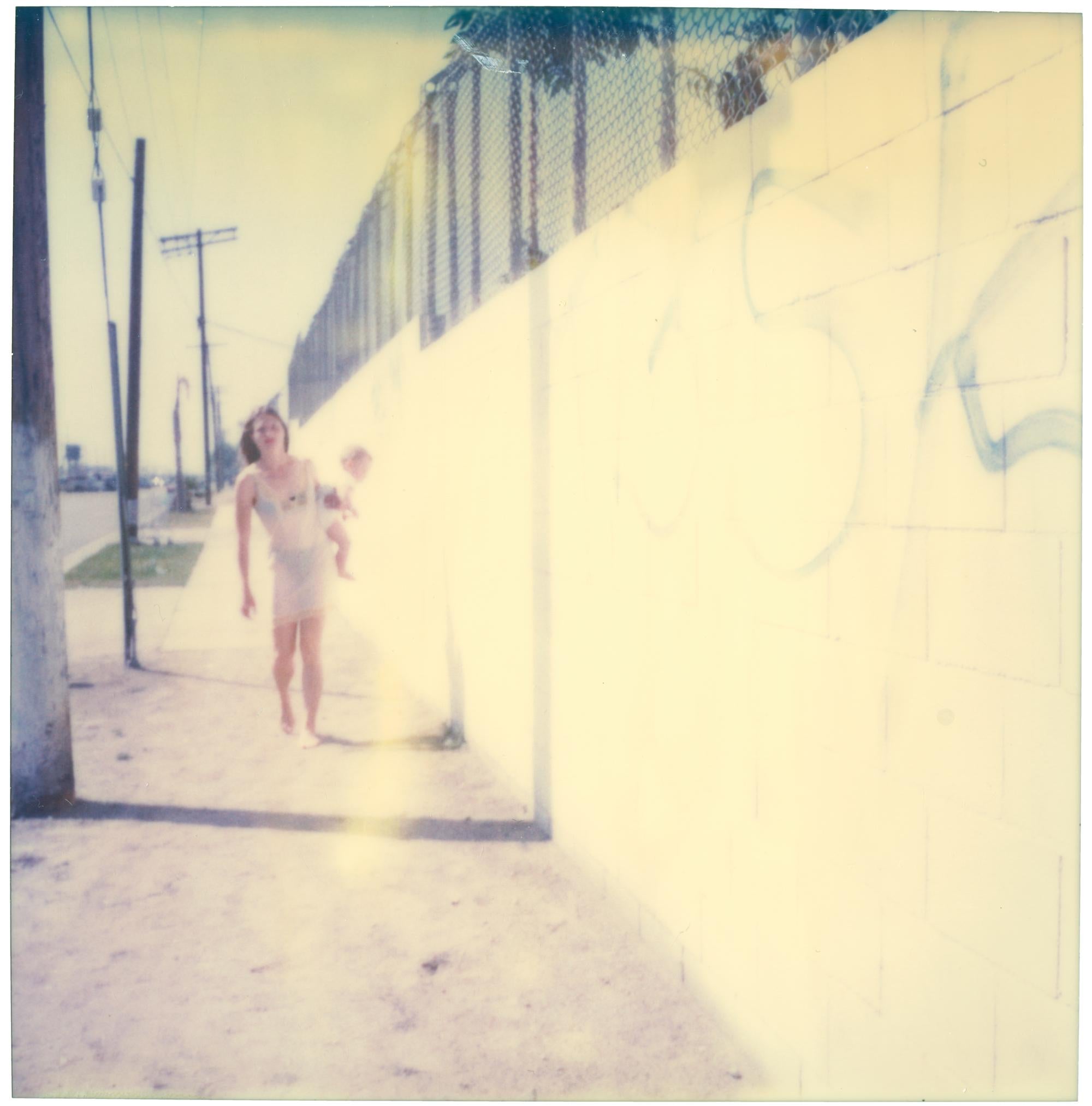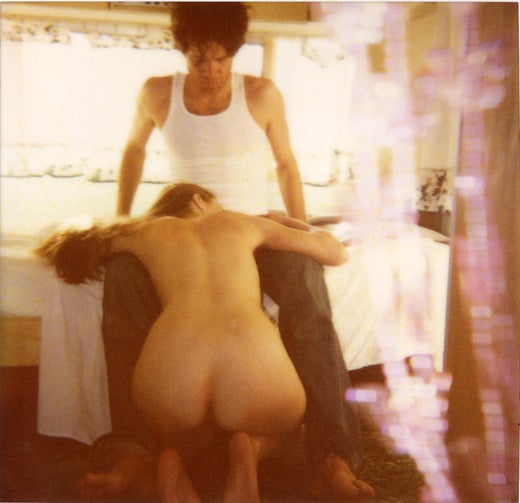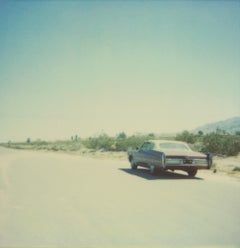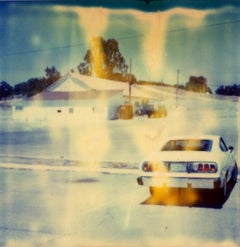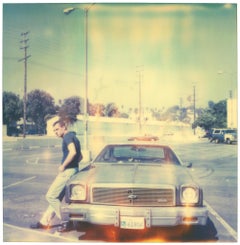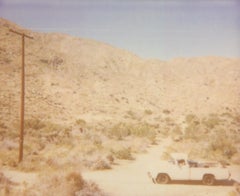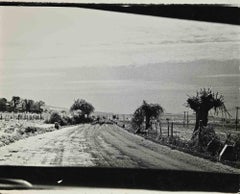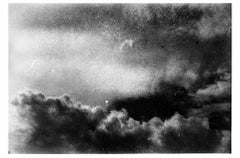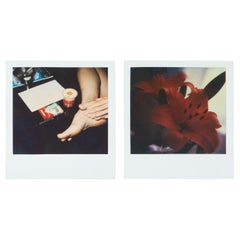Items Similar to Breakdown - Contemporary, 21st Century, Polaroid, Figurative Photography
Want more images or videos?
Request additional images or videos from the seller
1 of 5
Stefanie SchneiderBreakdown - Contemporary, 21st Century, Polaroid, Figurative Photography2013
2013
$3,000
£2,262.01
€2,606.65
CA$4,161.81
A$4,663.29
CHF 2,427.42
MX$57,048.14
NOK 30,811.58
SEK 29,101.17
DKK 19,459.21
Shipping
Retrieving quote...The 1stDibs Promise:
Authenticity Guarantee,
Money-Back Guarantee,
24-Hour Cancellation
About the Item
'Breakdown' - 2013,
60x75cm
Edition of 5,
analog C-Print, hand-printed and enlarged by the artist and based on the Polaroid
Certificate and Signature label
artist Inventory No. 13460.01
Not mounted.
Offered is a piece from the movie: The Girl behind the White Picket Fence
A tale told with blemished and expired Polaroid film about the hopes and dreams of an newly orphaned girl after loosing her parents who lived in Californian desert in an vintage Spartan travel-trailer .
-filmed with Polaroid film stock and Super-8 footage, overlaid with poetic voice over monoloque - this feature film creates a dynamic kaleidoscope of words and pictures, a dreamy tale that channels Terrence Malick, Gus Van Sant, and pages torn from a lonely girls journal (Palms Springs life magazine / Carolyn Ryder)
While Stefanie Schneider's art is often nostalgic and dreamlike, there is a darker side to her work that explores themes of decay, abandonment, and the death of the American dream.
In many of her images, Schneider focuses on abandoned buildings, rusted cars, and other relics of a bygone era. These images suggest a sense of decay and decline, and they raise questions about the fleeting nature of human existence and the transience of material objects. In some cases, Schneider's images are deliberately blurred or fragmented, suggesting a sense of instability and uncertainty about the past.
Schneider's images of women also often challenge traditional notions of beauty and perfection. Rather than presenting idealized or objectified images of women, she often depicts them in states of undress or vulnerability, suggesting a sense of shared humanity and a challenge to traditional power dynamics.
Through these darker themes, Schneider's work can be seen as a commentary on the decline of the American dream. Her images suggest a sense of loss and disillusionment, and they raise questions about the sustainability of the American way of life. At the same time, however, they also suggest a sense of resilience and hope, as the decaying objects and landscapes she depicts are often imbued with a strange beauty and a sense of mystery.
Overall, Stefanie Schneider's art offers a complex and multifaceted exploration of memory, nostalgia, and the human experience. While her work can be nostalgic and dreamlike, it also challenges viewers to consider the darker side of the American dream and to confront the realities of decay and decline in our society.
- Creator:Stefanie Schneider (1968, German)
- Creation Year:2013
- Dimensions:Height: 23.63 in (60 cm)Width: 29.53 in (75 cm)Depth: 0.04 in (1 mm)
- Medium:
- Movement & Style:
- Period:
- Condition:
- Gallery Location:Morongo Valley, CA
- Reference Number:1stDibs: LU652312193522
Stefanie Schneider
Stefanie Schneider received her MFA in Communication Design at the Folkwang Schule Essen, Germany. Her work has been shown at the Museum for Photography, Braunschweig, Museum für Kommunikation, Berlin, the Institut für Neue Medien, Frankfurt, the Nassauischer Kunstverein, Wiesbaden, Kunstverein Bielefeld, Museum für Moderne Kunst Passau, Les Rencontres d'Arles, Foto -Triennale Esslingen., Bombay Beach Biennale 2018, 2019.
About the Seller
4.9
Platinum Seller
Premium sellers with a 4.7+ rating and 24-hour response times
Established in 1996
1stDibs seller since 2017
1,032 sales on 1stDibs
Typical response time: 2 hours
- ShippingRetrieving quote...Shipping from: Morongo Valley, CA
- Return Policy
Authenticity Guarantee
In the unlikely event there’s an issue with an item’s authenticity, contact us within 1 year for a full refund. DetailsMoney-Back Guarantee
If your item is not as described, is damaged in transit, or does not arrive, contact us within 7 days for a full refund. Details24-Hour Cancellation
You have a 24-hour grace period in which to reconsider your purchase, with no questions asked.Vetted Professional Sellers
Our world-class sellers must adhere to strict standards for service and quality, maintaining the integrity of our listings.Price-Match Guarantee
If you find that a seller listed the same item for a lower price elsewhere, we’ll match it.Trusted Global Delivery
Our best-in-class carrier network provides specialized shipping options worldwide, including custom delivery.More From This Seller
View AllThe Getaway (Till Death do us Part) - Contemporary, Polaroid
By Stefanie Schneider
Located in Morongo Valley, CA
The Getaway (Till Death do us Part) - 2005
40x40cm,
Edition of 10 plus 2 Artist Proofs.
Archival C-Print, based on the original Polaroid.
Certificate and Signature label.
Artis...
Category
Early 2000s Contemporary Landscape Photography
Materials
Archival Paper, Photographic Paper, C Print, Color, Polaroid
On the Road (Last Picture Show) - Polaroid, Contemporary, Color
By Stefanie Schneider
Located in Morongo Valley, CA
On the Road (The Last Picture Show) - 2005,
20x20cm,
Edition of 10 plus 2 Artist Proofs.
Archival C-Print, based on the original Polaroid.
Certificate and signature label.
Artis...
Category
Early 2000s Contemporary Color Photography
Materials
Metal
Untitled (The Last Picture Show) - 21st Century, Polaroid, Contempoary
By Stefanie Schneider
Located in Morongo Valley, CA
Untitled (The Last Picture Show), 2005
38x36cm,
Edition 2/5.
Analog C-Print, hand-printed by the artist on Fuji Crystal Archive Paper,
based on the original SX-70 Polaroid.
Inventory No. 781.02.
Signature label and Certificate.
Not mounted.
LIFE’S A DREAM
(The Personal World of Stefanie Schneider) by Mark Gisbourne
Projection is a form of apparition that is characteristic of our human nature, for what we imagine almost invariably transcends the reality of what we live. And, an apparition, as the word suggests, is quite literally ‘an appearing’, for what we appear to imagine is largely shaped by the imagination of its appearance. If this sounds tautological then so be it. But the work of Stefanie Schneider is almost invariably about chance and apparition. And, it is through the means of photography, the most apparitional of image-based media, that her pictorial narratives or photo-novels are generated. Indeed, traditional photography (as distinct from new digital technology) is literally an ‘awaiting’ for an appearance to take place, in line with the imagined image as executed in the camera and later developed in the dark room. The fact that Schneider uses out-of-date Polaroid film stock to take her pictures only intensifies the sense of their apparitional contents when they are realised. The stability comes only at such time when the images are re-shot and developed in the studio, and thereby fixed or arrested temporarily in space and time.
The unpredictable and at times unstable film she adopts for her works also creates a sense of chance within the outcome that can be imagined or potentially envisaged by the artist Schneider. But this chance manifestation is a loosely controlled, or, better called existential sense of chance, which becomes pre-disposed by the immediate circumstances of her life and the project she is undertaking at the time. Hence the choices she makes are largely open-ended choices, driven by a personal nature and disposition allowing for a second appearing of things whose eventual outcome remains undefined. And, it is the alliance of the chance-directed material apparition of Polaroid film, in turn explicitly allied to the experiences of her personal life circumstances, that provokes the potential to create Stefanie Schneider’s open-ended narratives. Therefore they are stories based on a degenerate set of conditions that are both material and human, with an inherent pessimism and a feeling for the sense of sublime ridicule being seemingly exposed. This in turn echoes and doubles the meaning of the verb ‘to expose’. To expose being embedded in the technical photographic process, just as much as it is in the narrative contents of Schneider’s photo-novel exposés. The former being the unstable point of departure, and the latter being the uncertain ends or meanings that are generated through the photographs doubled exposure.
The large number of speculative theories of apparition, literally read as that which appears, and/or creative visions in filmmaking and photography are self-evident, and need not detain us here. But from the earliest inception of photography artists have been concerned with manipulated and/or chance effects, be they directed towards deceiving the viewer, or the alchemical investigations pursued by someone like Sigmar Polke. None of these are the real concern of the artist-photographer Stefanie Schneider, however, but rather she is more interested with what the chance-directed appearances in her photographs portend. For Schneider’s works are concerned with the opaque and porous contents of human relations and events, the material means are largely the mechanism to achieving and exposing the ‘ridiculous sublime’ that has come increasingly to dominate the contemporary affect(s) of our world. The uncertain conditions of today’s struggles as people attempt to relate to each other - and to themselves - are made manifest throughout her work. And, that she does this against the backdrop of the so-called ‘American Dream’, of a purportedly advanced culture that is Modern America, makes them all the more incisive and critical as acts of photographic exposure.
From her earliest works of the late nineties one might be inclined to see her photographs as if they were a concerted attempt at an investigative or analytic serialisation, or, better still, a psychoanalytic dissection of the different and particular genres of American subculture. But this is to miss the point for the series though they have dates and subsequent publications remain in a certain sense unfinished. Schneider’s work has little or nothing to do with reportage as such, but with recording human culture in a state of fragmentation and slippage. And, if a photographer like Diane Arbus dealt specifically with the anomalous and peculiar that made up American suburban life, the work of Schneider touches upon the alienation of the commonplace. That is to say how the banal stereotypes of Western Americana have been emptied out, and claims as to any inherent meaning they formerly possessed has become strangely displaced. Her photographs constantly fathom the familiar, often closely connected to traditional American film genre, and make it completely unfamiliar. Of course Freud would have called this simply the unheimlich or uncanny. But here again Schneider almost never plays the role of the psychologist, or, for that matter, seeks to impart any specific meanings to the photographic contents of her images. The works possess an edited behavioural narrative (she has made choices), but there is never a sense of there being a clearly defined story. Indeed, the uncertainty of my reading here presented, acts as a caveat to the very condition that Schneider’s photographs provoke.
Invariably the settings of her pictorial narratives are the South West of the United States, most often the desert and its periphery in Southern California. The desert is a not easily identifiable space, with the suburban boundaries where habitation meets the desert even more so. There are certain sub-themes common to Schneider’s work, not least that of journeying, on the road, a feeling of wandering and itinerancy, or simply aimlessness. Alongside this subsidiary structural characters continually appear, the gas station, the automobile, the motel, the highway, the revolver, logos and signage, the wasteland...
Category
Early 2000s Contemporary Landscape Photography
Materials
Archival Paper, Photographic Paper, C Print, Color, Polaroid
The Existence Is Disintegrating... - including the book 'A Half Forgotten Dream'
By Stefanie Schneider
Located in Morongo Valley, CA
The Existence Is Disintegrating into the Heat of the Desert Sirocco
(The Girl Behind the White Picket Fence) - 2015
Including Stefanie Schneider's new monograph "A Half Forgotten Dr...
Category
Early 2000s Contemporary Color Photography
Materials
Archival Paper, Photographic Paper, C Print, Color, Polaroid
Leaving Town (Sidewinder) - based on the Polaroid
By Stefanie Schneider
Located in Morongo Valley, CA
Leaving Town (Sidewinder) - 2005
80x80cm,
Edition of 10, plus 2 Artist Proofs,
Archival C-Print, based on the Polaroid.
Certificate and Signature label.
Artist Inventory No. 3...
Category
Early 2000s Contemporary Color Photography
Materials
Archival Paper, Photographic Paper, C Print, Color, Polaroid
$1,840 Sale Price
20% Off
There is No Tomorrow (The Last Picture Show) - Contemporary, Polaroid
By Stefanie Schneider
Located in Morongo Valley, CA
There is No Tomorrow (The Last Picture Show) - 2000
20x20m,
Edition of 10, plus 2 Artist Proofs.
Archival C-Print, based on the Polaroid.
Certificate and Signature label.
Artist...
Category
2010s Contemporary Landscape Photography
Materials
Archival Paper, Photographic Paper, C Print, Color, Polaroid
You May Also Like
The Road - Vintage Photograph - 1960s
Located in Roma, IT
The Road- Vintage Photograph is a black and white photograph realized in the 1960s.
Good conditions.
Category
1960s Contemporary Figurative Photography
Materials
Photographic Paper
Expired_14_2020 - Photograph by Serena Zeppilli
Located in Roma, IT
This photograph Expired_14_2020 was taken by the Italian photographer Serena Zeppilli.
It is part of the series "I was looking for something that I...
Category
21st Century and Contemporary Contemporary Figurative Photography
Materials
Photographic Paper
Untitled #46
By Vanessa Marsh
Located in Sante Fe, NM
Vanessa Marsh is an American artist living and working in California. Her series The Sun Beneath the Sky reflects upon the nature of light, atmosphere, geology and time. Layers of pa...
Category
2010s Contemporary Landscape Photography
Materials
Photogram
Miquel Arnal Set of Polaroid Photographs
By Miquel Arnal
Located in Barcelona, Barcelona
Set of Polaroid photographs by Miquel Arnal.
In original condition, with minor wear consistent with age and use, preserving a beautiful patina.
Material:
Photographic paper
...
Category
1990s Spanish Post-Modern Photography
Materials
Paper
$458 Sale Price / set
50% Off
Understudy
By Vanessa Woods
Located in Sante Fe, NM
Somewhere Between Here and There 2017
"Over and over, the works in 'Somewhere Between Here and There' invoke not only the borderlands of dreams but the shadow world inhabited by thos...
Category
2010s Contemporary Figurative Photography
Materials
Photographic Paper
Vintage 20X24 Format Polaroid Signed Surrealist Photograph Eve Sonneman Photo
By Eve Sonneman
Located in Surfside, FL
This is from a show at Sidney Janis Gallery and is from the estate of Joan Sonnabend.
Eve Sonneman (born in Chicago on 1946) is an American photographer and artist. She did a series ...
Category
1990s Contemporary Color Photography
Materials
Color, Polaroid
